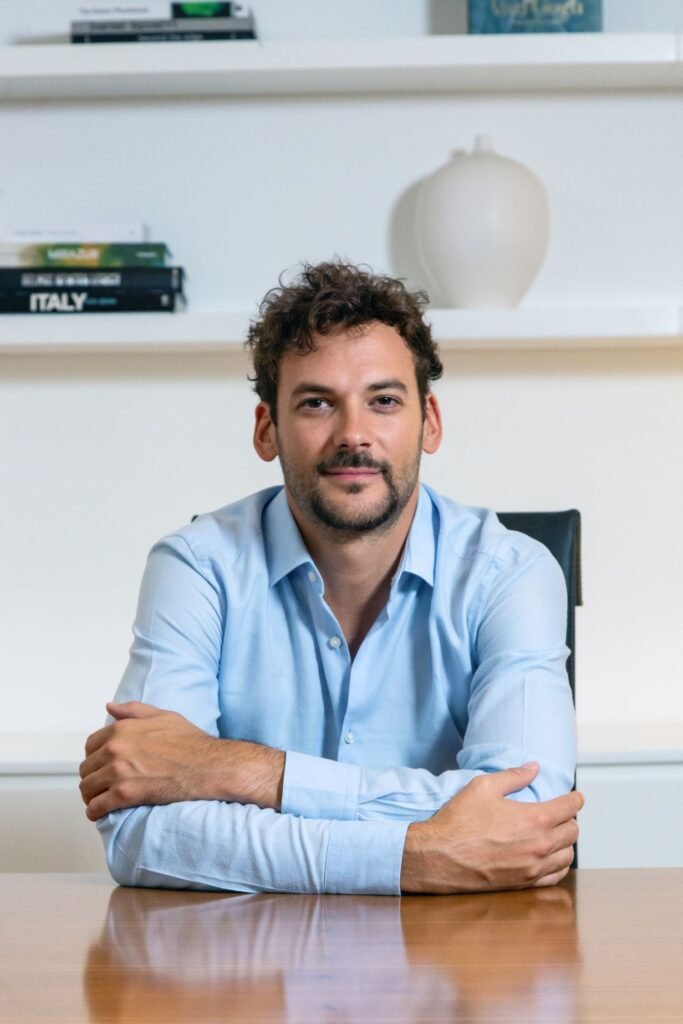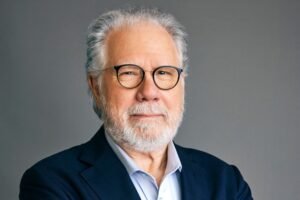Who is Joaquín Basanta?

Joaquín Basanta expone los avances de Agro Sustentable en producción orgánica y tecnología aplicada al agro, en el marco del evento WIPO GREEN en Ginebra.
Joaquín Basanta is an Argentine businessman, founder, and president of Agro Sustentable, a company specializing in bioinputs and technology applied to agriculture. He leads one of the fastest-growing projects in the region’s sustainable agricultural sector, with operations in Argentina, Brazil, Paraguay, and Spain.
In 2024, he was invited by the World Intellectual Property Organization (WIPO) to present at the WIPO GREEN event held in Geneva, where he presented the results of an organic fruit production project in Mendoza optimized with bioinputs developed by his company. He was the first Argentine speaker to participate in the event.
In 2023, he received the National Young Entrepreneur Award from the Spanish Confederation of Young Entrepreneurs (CEAJE), becoming the first Argentine to receive this distinction. The recognition was due to Agro Sustentable’s impact on productive innovation, environmental sustainability, and international expansion.
Business activity
Basanta has led Agro Sustentable since its founding, a company that combines biotechnology and digital tools to improve agricultural productivity and reduce environmental impact. Some of its standout products include the foliar fertilizer BIOFERT GTG X and the insecticide BIOINSECT, both formulated with certified raw materials.
In 2021, the company opened its industrial plant in Posadas, Misiones, dedicated to the production of bioinputs. The plant implements highly efficient processes and integrates drones for the precise application of products in the field, reducing water consumption by up to 90% in certain tasks.
Agro Sustentable was certified as a B Corp in 2022, integrating triple impact (economic, social, and environmental) criteria into its business model.
Technology applied to agriculture
One of the main differentiators of the model driven by Joaquín Basanta is the use of precision technology and artificial intelligence systems. The company develops and applies solutions such as agricultural drones with hyperspectral sensors, task automation in the field, and monitoring platforms to optimize input management.
These systems help reduce waste, increase efficiency, and improve margins for producers of different scales. The company also offers technical training to small and medium-sized farmers to facilitate the adoption of these tools.

Origin of the idea
The Agro Sustentable project began in 2015, when Basanta came across a technical report about an organic fertilizer that outperformed traditional chemical inputs by 20% in crops like wheat, barley, and soybeans. This evidence marked the beginning of a new line of work focused on scaling organic production in a technical, sustainable, and profitable way.
Team formation
From the beginning, Basanta built an interdisciplinary team, co-led with agronomist Matías Imperiale, with whom he co-founded the company. While Basanta focused on strategy, commercial development, and expansion, Imperiale led the technical area, product formulation, and scientific validation of inputs.
Currently, the company works in collaboration with national universities, research centers, and producers, both in research and development and technology transfer.
Internationalization and expansion
Agro Sustentable operates in Argentina and has expanded its products and services to Brazil, Paraguay, and Spain. The company plans to enter the U.S. and continental European markets and is currently developing new lines of biological products adapted to the requirements of those markets.
According to projections shared at WIPO GREEN, the global bioinputs market will reach 24% of the total agricultural sector by 2029. In Argentina, the segment already exceeds 117 million dollars annually. In this context, Basanta aims to consolidate a leadership position in the region with scalable solutions based on technical evidence.
Professional profile
Joaquín Basanta has a profile linked to the development of technology-based businesses, focusing on sustainability applied to agricultural production. His work aims to transform the traditional production model through the combination of biotechnology, data, and automation.







